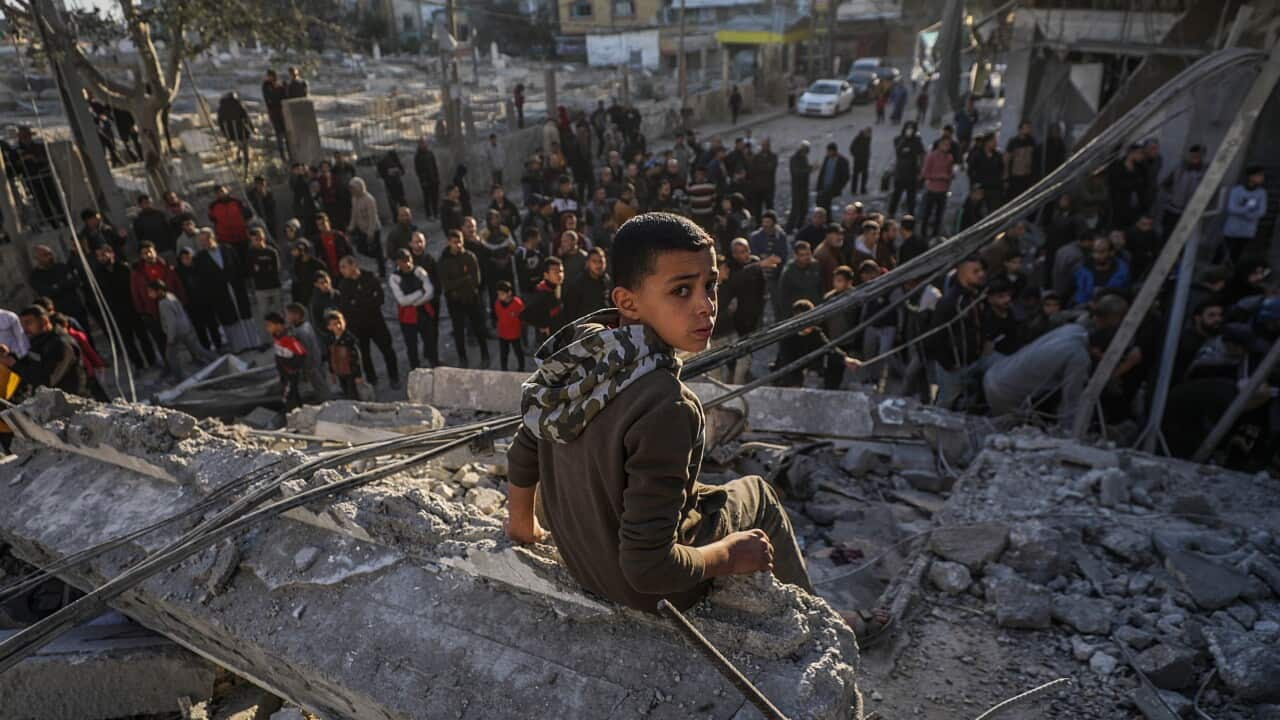Key Points
- There has been no word of an outcome over a Gaza ceasefire following eight hours of talks.
- Hamas says it waiting for Israel to submit withdrawal maps.
- All sides say negotiations are in their final steps.
After hours of high-level talks this week, the much-anticipated ceasefire deal to end the war in Gaza is yet to be finalised.
Negotiations between Israel and Hamas have been taking place in Doha. Representatives from the US and regional mediators say discussions have reached a “breakthrough” point, with a final draft of an agreement now under consideration.
On both sides though, key details need to be hammered out.
A Hamas official said the group was waiting for Israel to submit maps showing how its forces would withdraw from Gaza, including the Netzarim area in the middle of the strip, to allow the return of the displaced people to their homes, Jabalia in the north of the tiny territory, the Philadelphi road along the southern border with Egypt, and Rafah, also near that border.
“We are close, [but] we are not there yet,” an Israeli official said when asked about the critical final phases of the agreement.
Prime Minister Anthony Albanese expressed hope a ceasefire can be reached.
“We’ve been calling for some time for hostages to be released. We want Hamas to have no role in the future of that region,” he said on Wednesday.
“We want a ceasefire in the interests of both Israelis and those in the occupied Palestinian territories. So we are hopeful of a ceasefire, that would be a good thing.”
What exactly is being negotiated?
According to an Israeli official and a Palestinian official, these are the main points from the draft deal. Hamas has not provided any details.
In the first stage of a potential truce, 33 hostages would be set free. These include children, women — including female soldiers — men above 50, and the wounded and sick. Israel believes most of its hostages are alive but has had no official confirmation from Hamas.
The initial stage would last several weeks, although the Israeli official said the precise duration had not been settled. The Palestinian official said it would last 60 days.
If it proceeds as planned, on the 16th day from the deal taking effect, negotiations would start on a second stage, with the aim of securing the return of the remaining living hostages — male soldiers and younger civilian males — and the return of the bodies of dead hostages.
Meirav Leshem Gonen, whose 24-year-old daughter Romi was shot and seized by gunmen at a music festival, said the family had been picturing her return for months as “the light at the end of the tunnel”.
“We have to keep our feet on the ground. But on the other hand our heads are in the clouds,” she said.
In return for the hostages, Israel will free from its jails a significant number of Palestinian prisoners, including some serving long sentences for deadly attacks, although exactly how many will depend on how many hostages are still alive.
Where the prisoners would be sent has not yet been agreed but anyone convicted of murder or deadly attacks would not be released to the West Bank.
Anyone who took part in the October 7 2023, attack on Israel’s southern border would not be released.
Israel’s withdrawal and increased aid
Israel says it will not fully withdraw its troops until all the hostages have been returned but there will be a phased pullback, with Israeli forces remaining in the border perimeter to defend Israeli border towns and villages.
Unarmed North Gaza residents would be allowed to go back to their homes, with a mechanism to ensure no weapons are moved there. Israeli troops will withdraw from the Netzarim corridor in central Gaza.
The Rafah crossing between Egypt and Gaza will start to work gradually, allowing the passage of those who are sick and humanitarian cases out of the enclave for treatment.
The draft deal also stipulates that there would be a significant increase of aid into the Gaza Strip, where international bodies including the UN say the population is facing a severe humanitarian crisis.
The future of Gaza
Who will run Gaza after the war is one of the unknowns of the negotiations. It appears that the current round of talks left the issue out of the proposal because of its complexity and the likelihood it would hold up a limited deal.
Israel has said it will not end the war leaving Hamas in power. It has also rejected the possible administration of Gaza by the Palestinian Authority, the Western-backed body set up under the Oslo interim peace accords three decades ago that exercises limited sovereignty in the occupied West Bank.
It has also said from the beginning of its military campaign in Gaza that it will retain security control over the enclave after the fighting ends.
The international community has said Gaza must be run by Palestinians, but efforts to find alternatives to the existing factions among civil society or clan leaders have proved largely fruitless.
However, there have been discussions between Israel, the United Arab Emirates and the US over a provisional administration that would run Gaza until a reformed Palestinian Authority can take charge.
